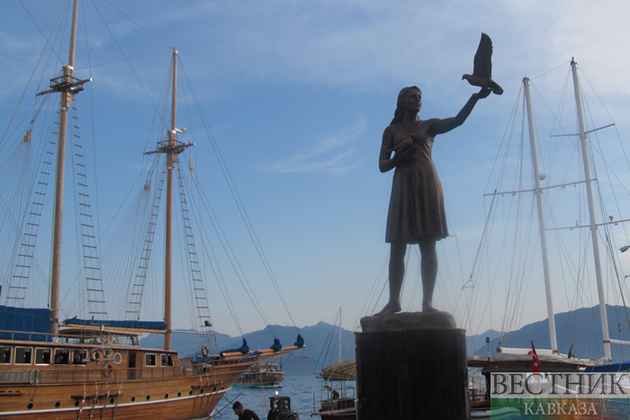Türkiye carries out normalization processes without breaking its stance for peace and stability in its region and within the framework of international law. In normalization with Egypt, which is progressing more slowly than Israel, the United Arab Emirates (UAE) and Armenia, contacts were established at the level of the deputy foreign minister after the meetings between the intelligence services. Finally, it was learned that negotiations on economic cooperation and trade were held at the general manager level. Discussions on foreign trade with Egypt, which is going through an economically troubled period, took place.
Daily Sabah report that after an eight-year break, the Egyptian delegation came to Ankara four months after the two-day visit of the Turkish delegation led by Deputy Foreign Minister Sedat Önal to Cairo, the capital of Egypt, in May last year, and consultative meetings were held.
While concrete steps were taken in the normalization processes that started long after the contact with Egypt, it is stated that the spread of this process with Egypt does not mean that the process does not progress in a positive direction.
Ankara states that it has the will to accelerate the process and states that the reason for the slow progress of the process is that it focuses on Cairo's domestic politics. Türkiye defends the view that positive relations between the two countries are important for the Eastern Mediterranean, the Palestinian issue, Africa and the Arab world.
On the other hand, contact was established with Egypt to bring the Palestinian brothers Rahaf and Muhammed Halil Salman, who were injured after an Israeli missile fired at the north of the Gaza Strip, on Aug. 6, to Türkiye and be treated by order of President Recep Tayyip Erdoğan. Regarding the relations with Egypt, Erdoğan said last month that Türkiye continues its contacts with Cairo at the level of ministers. "We hope that we can take this step at the highest level in the best way possible because the people of Egypt are our brothers. It is not possible for us to be offended with the Egyptian people," he said.
Last year, Türkiye said it had resumed diplomatic contact with Egypt and wanted to improve cooperation after years of tensions that began with the disruption of relations in 2013. In May 2021, a delegation of senior Turkish officials traveled to Egypt for an official visit – the first since 2013 – to discuss normalizing diplomatic relations amid efforts by the two countries to improve bilateral ties that deteriorated following the Arab Spring. At the end of the visit, the two countries issued a joint statement describing the exploratory round of bilateral talks between them as "frank and in-depth." On May 7, 2021, Erdoğan announced the start of a new phase in relations with Egypt, stressing that the talks would continue, develop and expand.
The normalization of ties between Türkiye and Egypt is vital for the Eastern Mediterranean, Foreign Minister Mevlüt Çavuşoğlu said this year. Egypt and Türkiye have not deployed ambassadors since 2013, when relations worsened following the ousting of Egyptian President Mohamed Morsi by military chief Abdel Fattah al-Sisi, now the country’s president. Türkiye-Egypt ties have continued at the level of charge d'affairs since 2013. During this period, brief meetings were held between the foreign ministers of the two countries on various occasions.
Recently, however, signs of a possible reconciliation have come from both countries, particularly due to the changing dynamics in the Eastern Mediterranean and the Türkiye-Greece crisis over the region’s energy resources. Meanwhile, the Turkish Embassy in Cairo and consulate in Alexandria, as well as the Egyptian Embassy in Ankara and consulate in Istanbul, have continued their usual activities. Türkiye has engaged in an effort to mend its frayed ties with regional powers, including Egypt and Saudi Arabia. Erdoğan reiterated that Türkiye hopes to maximize its cooperation with Egypt and Gulf nations "on a win-win basis," at a time when Ankara intensified diplomacy to mend its fraught ties with Cairo and some Gulf Arab nations after years of tensions.






